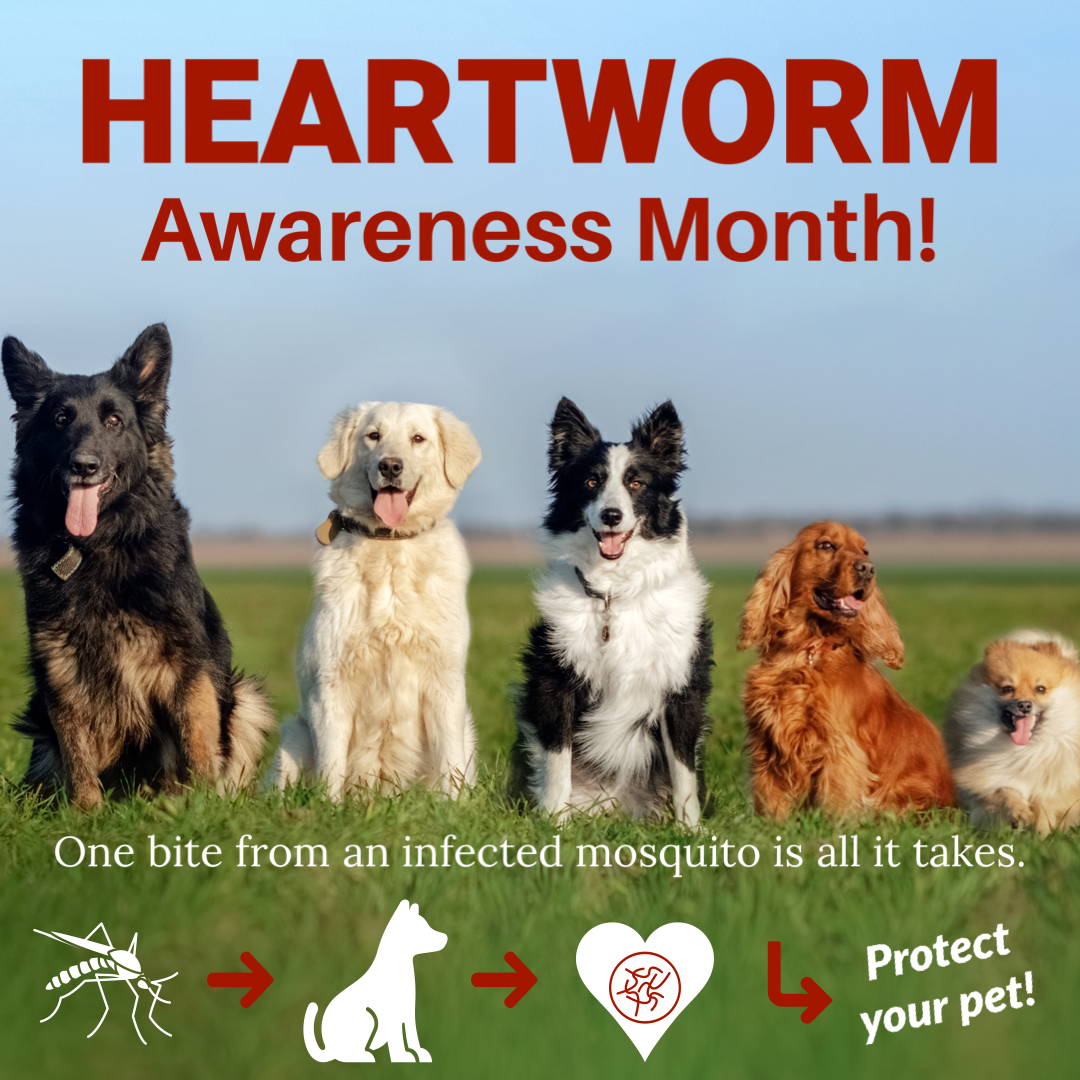Heartworm Disease, while rare in this area, can cause severe short and long term symptoms, and is extremely costly and difficult to treat. Luckily, Heartworm Disease can be prevented and can be diagnosed by performing a simple blood test. Not only does the testing check for Heartworm Disease, it also screens for 3 other vector-borne diseases (Lyme, Ehrlichia, and Anaplasma).
Here are 7 things you should know about Heartworm Disease:
- Transmission of heartworms – A single bite from an infected mosquito can infect your pet(s) with heartworms.
- It is recommended to test your pet(s) annually! – All dogs and cats are susceptible to infection & should be tested prior to starting preventatives.
- Heartworm source – Coyotes have been recognized as a major reservoir host for heartworms and wherever coyotes live there are likely heartworms.
- Size of worms – Larval states are microscopic in size, adult heartworm on the other hand can grow to over a foot in length and live in the arteries of the heart and lung of your pet(s).
- Treatment- While treatment is relatively well understood, heartworm infection is very difficult and costly to cure. The treatment involves injectable arsenic-like chemicals and requires weeks and even months of total exercise restriction. Part of the treatment also includes antibiotics and the use of preventatives to control further infections.
- Prevention- There are various forms of preventative that are very effective. Oral, injectable or topical forms can be administered regularly and should be used year round to prevent heartworm infections.
- Additional preventative measures- Mosquito control is important, eliminating places where they reproduce: prevent standing water in dishes, flower pots, ponds and puddles. Mosquitoes breed and reproduce very quickly and efficiently. Avoid outdoor exposure at night. Mosquitoes feed actively at this time and keeping your pet(s) indoors can do a lot to prevent exposure.

